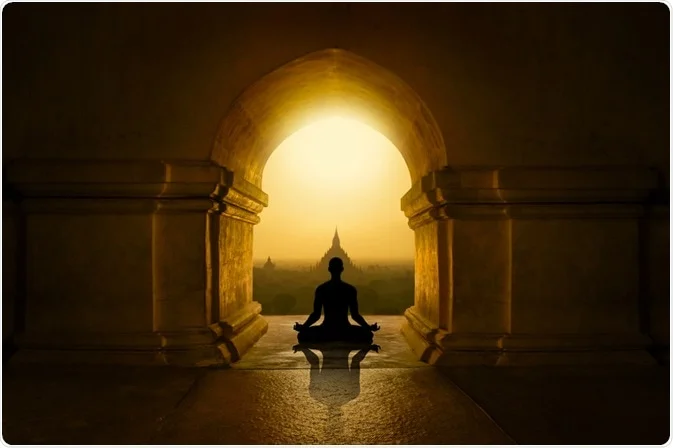"Meditation for Beginners: Finding Calm in the Chaos"
- Dr Vivek Viswanathan

- Jun 27, 2024
- 2 min read
Do you ever feel like your mind is a never-ending to-do list on overdrive? In today's fast-paced world, finding moments of calm can feel like a luxury. But what if there was a simple practice that could help you cultivate inner peace and reduce stress – even if it's just for a few minutes a day? Enter meditation: an ancient practice with surprising benefits for the modern mind.
Demystifying Meditation:
Meditation isn't about achieving a state of complete emptiness or forcing yourself into uncomfortable positions (although sitting cross-legged is a common posture). It's about training your attention and developing a sense of awareness. You're essentially training your mind to focus on the present moment, rather than getting caught up in worries about the future or regrets about the past.
Why Meditate? The Benefits:
Meditation offers a wide range of benefits for both your mental and physical well-being. Here are just a few:
Reduced Stress and Anxiety: Meditation helps you become aware of your thoughts and emotions without judgment, allowing you to let go of negativity and cultivate a sense of calm.
Improved Focus and Concentration: By training your attention, meditation can enhance your ability to focus on tasks and resist distractions.
Enhanced Self-Awareness: Through regular meditation, you gain a deeper understanding of your thoughts, feelings, and patterns of behavior.
Improved Sleep: A calmer mind often leads to better sleep quality, contributing to overall well-being.
Increased Emotional Regulation: Meditation can help you manage challenging emotions more effectively, reducing emotional reactivity.
Getting Started: Your First Meditation Session
Ready to give meditation a try? Don't worry, it's easier than you might think! Here are some tips for your first session:
Find a Quiet Space: Choose a place free from distractions with minimal noise.
Set a Timer: Start with a short session – 5-10 minutes is a good starting point.
Get Comfortable: Sit in a relaxed position that allows you to be alert but not tense. You can sit on a chair with your feet flat on the floor or try a traditional cross-legged position with support for your back if needed.
Focus on Your Breath: Use your breath as an anchor. Close your eyes (if comfortable) and pay attention to the sensation of your breath moving in and out of your body. Notice the rise and fall of your chest or abdomen.
Don't Judge Your Thoughts: When distracting thoughts arise (and they will!), acknowledge them gently and bring your attention back to your breath.
Remember: Meditation isn't about achieving a perfect state of mind. It's about practice. Even a few minutes of meditation can make a big difference. Be kind to yourself, and celebrate your progress, no matter how small.
Beyond the Basics:
As you become more comfortable with meditation, you can explore different techniques:
Guided Meditations: Many apps and online resources offer guided meditations with soothing voices to guide your practice.
Mindfulness Meditation: This practice focuses on cultivating present-moment awareness and observing your thoughts and feelings without judgment.
Mantra Meditation: This technique involves silently repeating a word or phrase to help guide your focus and quiet the mind.
Meditation for Everyone:
Meditation is a practice for everyone, regardless of age, religion, or physical ability. Whether you're seeking stress relief, improved focus, or simply a moment of quiet reflection, meditation can be a valuable tool on your journey to well-being. So, take a deep breath, find a quiet space, and give it a try. You might be surprised by the calm you can cultivate in the midst of the chaos.



















Comments